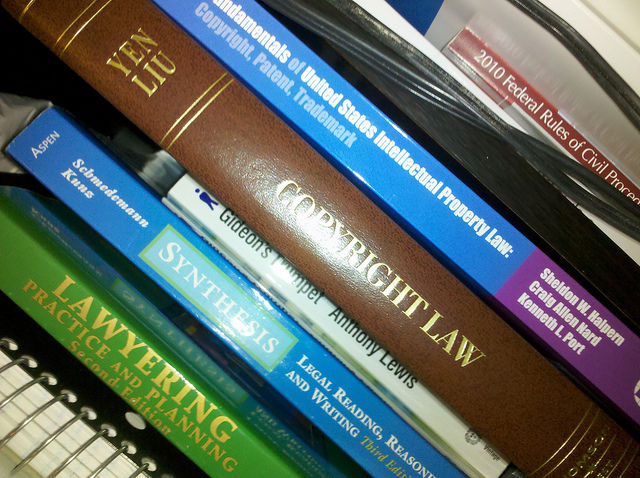
On Thursday, the Supreme Court provided nuanced guidance to lower courts in determining whether the prevailing party in a copyright lawsuit should be awarded attorney fees. The decision by the unanimous eight-member court revives a $2 million fee dispute in one of the court's most important copyright cases in the digital era.
The issue is significant because attorneys fees play a huge role in US litigation, and they are among the top considerations of whether a lawsuit would be brought or even defended.
The case the justices decided Thursday (PDF) concerns the fallout from Kirtsaeng v. Wiley, the court's 2013 decision involving the rights of those who buy copyrighted works. In that closely watched case, the justices had ruled that the first-sale doctrine allowed a US university student to buy textbooks overseas and resell them on eBay while undercutting textbook publisher John Wiley & Sons. The publisher sued on copyright infringement allegations and lost in a case in which the justices certified the reselling rights of those who buy copyrighted works. At the same time, the ruling put companies on notice that they don't have unlimited control of their products once they hit the stream of commerce.
The attorneys for the plaintiff in the case, Supap Kirtsaeng, were denied the $2 million in attorneys fees they had sought litigating and winning the case. The lower courts sided with John Wiley & Sons on that issue. Kirtsaeng appealed that fee issue to the justices. The high court accepted the petition in January and ruled on the dispute Thursday.
As the Supreme Court puts it, the lower courts gave "substantial weight" to the “objective reasonableness” of Wiley’s infringement claim. Writing for the court, Justice Elena Kagan summed up the lower's court's rationale in denying fees in this case:
In explanation of that approach, the court stated that "the imposition of a fee award against a copyright holder with an objectively reasonable"—although unsuccessful—"litigation position will generally not promote the purposes of the Copyright Act."
An appeals court upheld that ruling, which the high court set aside Thursday. The decision doesn't mean Kirtsaeng's counsel will ultimately get their fees, but it means the justices want the lower courts to change the way they consider awarding fees to prevailing parties in copyright lawsuits. As it turned out, courts across the country were all over the map concerning fees, and the Supreme Court wants an end to that disparity.
According to Kagan:
Section 505 of the Copyright Act provides that a district court “may... award a reasonable attorney’s fee to the prevailing party.” 17 U. S. C. §505. The question presented here is whether a court, in exercising that authority, should give substantial weight to the objective reasonableness of the losing party’s position. The answer, as both decisions below held, is yes—the court should. But the court must also give due consideration to all other circumstances relevant to granting fees; and it retains discretion, in light of those factors, to make an award even when the losing party advanced a reasonable claim or defense. Because we are not certain that the lower courts here understood the full scope of that discretion, we return the case for further consideration of the prevailing party’s fee application.
For Kirtsaeng, the decision means the lower courts will have to re-examine his fee request. But Kagan was careful to note that "we do not at all intimate" that the lower courts "should reach a different conclusion than it already has."
In Kirtsaeng's petition (PDF) to the justices, his lawyers maintained that winning legal fees was a crapshoot in copyright cases. For its part, John Wiley & Sons maintained (PDF) that it should not have to pay fees, because it claimed it brought a reasonable lawsuit over a complex issue. In its view, a ruling against the textbook publisher could discourage the filing of legitimate copyright cases.
reader comments
58